Five things you need to know about Alabama’s gas tax increase proposal

Last week, Alabama Gov. Kay Ivey announced her Rebuild Alabama Infrastructure Plan that proposes raising the state’s gas tax 10-cents to pay for infrastructure improvements. Here are the top 5 things you need to know about the proposed tax increase: Current gas tax rate: Alabama’s current state gas tax is 18 cents per gallon. Proposed gas tax rate: Ivey’s proposal includes a plan that increases a total of 10 cents over the course of three years, as follows: up 6 cents effective October 1, 2019, up another 2 cents, effective October 1, 2020, and up another 2 cents, effective October 1, 2021. Last time the gas tax increased: 1992. Since then there have been several proposals to increase the gas tax, but they’ve yet to pass the State Legislature. Number of votes needed to pass the tax in the House: Should Ivey call a special session on the gas tax, a simple majority will be needed to pass the proposal. With 105 members of the State House of Representatives, just 53 members need vote in support of it. Total cost of the proposal to the average driver: $55 a year, or $4.58 a month. That’s according to the Alabama Transportation Institute based on 12,000 annual miles and 22MPG.
Five things you need to know about Cara McClure

Cara McClure, the Democratic candidate for Public Service Commission Place 1 ran unopposed in the June 5 primary. But now that the primaries are over, the real battle has begun. McClure now faces incumbent Republican Commissioner Jeremy Oden in the November 6 general election for the PSC seat. With that in mind, here are the five things you need to know about Cara McClure: 1. She’s an entrepreneur by nature Nurturing her entrepreneurial spirit, McClure’s parents allowed her to work for their family’s cleaning service while she was in elementary school. There she made cold calls to apartment complexes and small businesses, she also sold candy door-to-door she says in her campaign bio. 2. She is a co-founder of the Magic City Chapter of Black Lives Matter group. After a dispute between group members on whether or not to join with the national Black Lives Matter group, the Black Lives Matter in Birmingham group split into two separate entities from which the Magic City Chapter of Black Lives Matter was formed. McClure was a co-founder of the second group, which voted to join the national coalition of BLM groups. “I’ve been with that group [Black Lives Matter in Birmingham] since Day One,” McClure told AL.com. “I didn’t like how the women were treated. I said we really need to join the national group, and they voted no. We’ve put together an awesome group. We’re not just out there screaming. We want real change.” 3. She’s a dedicated activist. Beyond her work with the BLM movement, McClure also helped launch Showing Up for Racial Justice Birmingham — a group that works to undermine white supremacy and to work toward racial justice through community organizing, mobilizing, and education. She also spearheaded “Black Mama’s Bail Out Day” in Birmingham, which raised money to help bail out incarcerated black mothers to help reunite with their children and families ahead of Mother’s Day. As a recent Glamour Magazine article that featured McClure pointed out, “if elected, she would become the first African American—male or female—to serve on the commission in Alabama. Her hope is to represent the people she’s been fighting for throughout her life: ‘the marginalized and poor black and brown communities that are underrepresented on the commission,’ she says. ‘Those who don’t have a voice or seat at the table.’” 4. She was briefly homeless. Following a marital separation McClure and her son were left homeless. Rebounding quickly and using her personal struggle as a tool, McClure founded her own apartment locator service, ASAP Apartment Locators in January of 2013 to help individuals and families find their ideal homes, which she continues to operate today. 5. She and Kari Powell are leading a double-team effort for PSC Places 1 and 2. In addition to creating McClures branding, Kari Powell and McClure are leading a double-team effort for PSC Places 1 and 2 traveling, campaigning and speaking together at events. Both running as Democrats, they seek to bring fair and affordable utility rates to Alabama.
Five things you need to know about Kari Powell
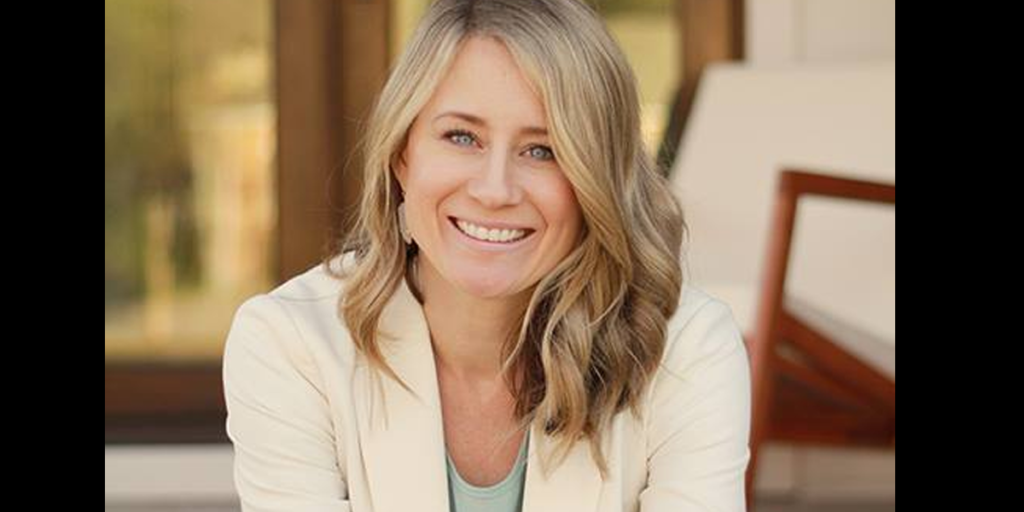
Now that the primaries are over, the real battle has begun. Running unopposed in the June 5 Primary Kari Powell, the Democratic candidate for Public Service Commissioner Place 2, will face against Incumbent Chip Beeker in the November 6 general election for the PSC seat. With that in mind, here are the five things you need to know about Kari Powell: 1. She’s a graphic designer and marketer by trade. Powell began her career working for two large family owned real estate companies as a Marketing Director, and has won an award for her talents. “I was integral in designing and developing new websites for both companies, and maintaining content. Other duties included developing and implementing external and internal marketing campaigns, and creating marketing and advertising plans for sales associates,” Powell said. In 2013, she won a HOW International Design Award for the logo she designed for her husband’s business, Powell Pediatric Dentistry. 2. She volunteers her time and talent to several organizations. In addition to designing her own campaign logo, she also designed Senate District 11 candidate Carl Carter, and Public Service Commission Place 1 candidate Cara McClure‘s branding. “In 2017 I did a pro-bono rebranding of the Service Guild of Birmingham, an organization which I am a member of,” Powell told Alabama Today. “I do as-needed design work for my church, Saint Junia UMC. In 2016 I designed the logo for the local organization Faith In Action Alabama, of which I am also a member.” She also volunteers her time at the Bell Center for Early Intervention Programs with infants and toddlers at risk for developmental delay. 3. She’s a graduate of Emerge Alabama candidate training. Emerge Alabama founded in 2017, is a training group for Democratic women in the state with only one goal: increase the number of Democratic women serving in office in the state. It is an intensive 70-hour training program with proven results. “In 2016, over 330 Emerge alumnae ran for office across the country and 70 percent of those who appeared on the November ballot won their elections,” Emerge Alabama said. 4. Her grandmother was involved in politics, and was the person who convinced her to run. Powell’s grandmother ran for office herself in the 1960’s beating six men for her seat on the school board, which was rare at the time, continuing to run unopposed for the next two terms. “She saw how active I had become over the past couple of years in local and statewide elections, and she pulled me aside at a family wedding, and asked if I had ever considered running for office,” Powell said. “She said she regrets not taking her political career further, and urged me to consider running.” 5. She and Cara McClure are leading a double-team effort for PSC Places 1 and 2 In addition to creating McClures branding, the duo is leading a double-team effort for PSC Places 1 and 2 traveling, campaigning and speaking together at events. Both running as Democrats, they seek to bring fair and affordable utility rates to Alabama.
Five things you need to know about Gerald Dial
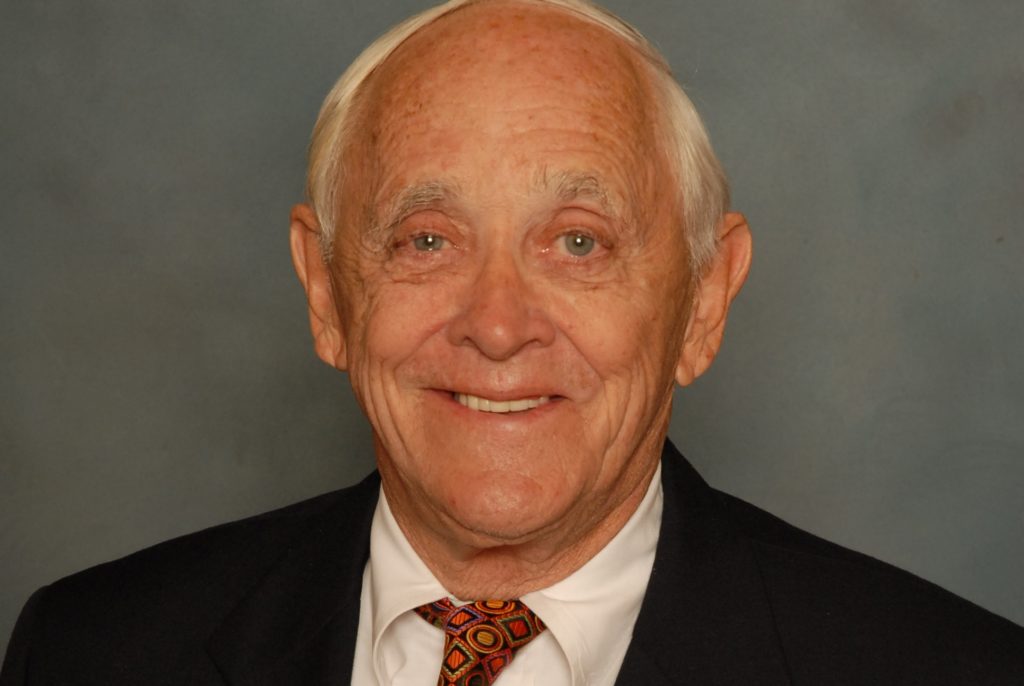
The primary elections are over, but some highly sought spots still remain open due to the primary races resulting in runoffs. One of those races is for the Commissioner of Agriculture and Industries seat. Incumbent Agricultural Commissioner John McMillan announced in January he would not be seeking reelection, opting for a run for State Treasurer instead. Four candidates stepped-up to the plate seeking election in the June 5 Republican primary. Former state Sen. Gerald Dial and Lowndesboro Mayor Rick Pate both garnered enough support to tip the race into a a runoff election set for July 17. With that in mind, here are the five things you need to know about Gerald Dial: 1. He served 37 years in the military, retiring in 1997 as an Assistant Adjutant General of the Alabama National Guard Dial joined the Alabama National Guard in 1959, over the course of his 37 year career in the military he attended the Alabama Military Academy and the Engineering Officers Basic Course. In 1968 he also completed the rigorous training required to become a United States Army Ranger, and was ranked as the Assistant Adjutant General of the Alabama National Guard when he retired in 1997. 2. He served in the state legislature as both a senator and a representative. In 1974 Dial was elected to serve as a Representative to the Alabama House, a position he held for one term. After his term as a representative, Dial sought election to the Alabama State Senate District 13 in 1983 and won. He then held his position until 2006 coming back to the race in 2010 to win the district back. This year, instead of seeking re-election, he’s joined the race for Agricultural Commissioner citing his 44 years of service in the Alabama Legislature as enough experience for the job. 3. He’s currently one of the President’s pro tempore at Troy University. Then governor Guy Hunt appointed Dial to the Troy University Board of Trustees in 1991 where he now serves as President pro tempore for Area 5. “Sen. Gerald Dial is one of the best public servants that I have met throughout my life in Alabama,” Troy Chancellor Dr. Jack Hawkins Jr. told the Trojan News Center. “For 26 years he has served as a member of the Troy University Board of Trustees and he has served well. Leadership in its truest sense is about pulling people together and focusing them in a common direction. Sen. Dial is the essence of a servant leader and one of whom we can all be proud.” 4. He was appointed by former governor Bob Riley to serve as the Executive Director of the Alabama Rural Action Commission. Dial served as the Executive director of the Alabama rural action commission from 2007 to early 2018, he was appointed for the position by then governor Bob Riley. According to his campaign website, while serving in this position, Dial “helped secure grants for infrastructure improvements, rural broadband initiatives, and community development.” 5. He financed his campaign through his timber business Pate, Dial’s opponent claimed he was the only farmer in the primary race, but Dial says that’s not true. “I am a farmer as well,” Dial told AL.com. “I financed my campaign off of timber.”
Five things you need to know about Jim Zeigler
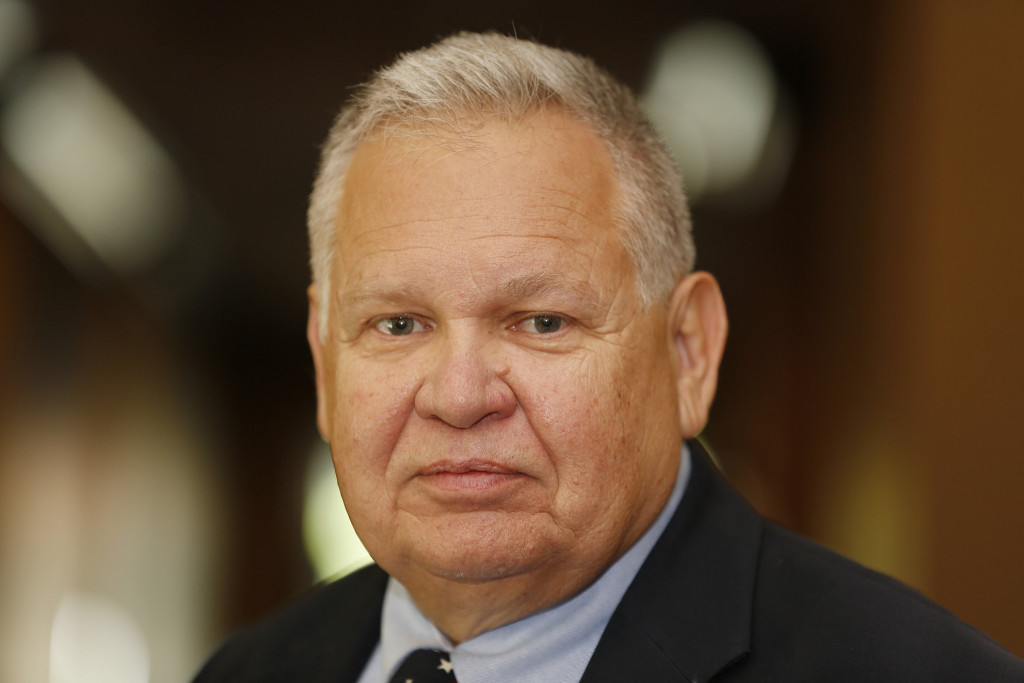
Incumbent State Auditor Jim Zeigler ran circles around his opponents in the June primary, taking home 55 percent of the vote. But now that the primaries are over, the real battle has begun. Zeigler one again faces Democratic nominee Miranda Joseph in the November 6 general election, creating a bit of a déjà vu for voters as the two ran against one another in 2014. With that in mind, here are the five things you need to know about Jim Zeigler: 1. He’s been Alabama’s state auditor since 2014, and has served in one other state office. Zeigler served on the Alabama Public Service commission in the 1970’s, and after running several unsuccessful campaigns for statewide offices in the early 2000’s, he was elected State Auditor in 2014. Since then he has been working hard: announcing a budget plan to save the state’s park system in 2015 and launching a volunteer-based program within his office to investigate claims of waste, fraud and abuse within Alabama state government, to his most recent quest to solve Alabama’s infrastructure problems; he’s become a public fixture nobody expected. 2. His background is in law and he practiced law for over 20 years. Originally from Sylacauga, Ala., Zeigler earned his JD from the Jones Law Institute at Faulkner University in Montgomery; obtaining his license in 1978. In 1993, he opened his own private practice, practicing as a mediator, arbitrator, and attorney until 2015, when he was elected State Auditor. Zeigler recently voluntarily relinquished his law license, after deciding not to run for Alabama Attorney General. 3. He’s fought hard against government waste while in office and continually seeks to keep Alabama lawmakers in check. The Alabama Department of Transportation’s (ALDOT) long contested “bridge to nowhere,” was a battle against wasteful spending Zeigler was willing to fight. Calling on ALDOT’s transportation director John Cooper to answer his questions about the need for an $87 million state-funded bridge project in Baldwin County — which would be a second bridge to Orange Beach, later saying the department needed to redirect funds from the bridge to the Mobile River Bridge and the I-10 Bayway Project. Zeigler has continued to “stir the pot” during his time in office, and seeks to continue what he sees as his job; keeping Alabama legislative officials in check. “I have a plan to turn the State Auditor’s office into a watchman against government mismanagement and waste,” Zeigler told Alabama Today. “It is starting to work.” 4. He was Student Government Association President at the University of Alabama. While in college, Zeigler served as President of the university’s Student Government Association (SGA) from 1970 to 1971. While there, he also served on the Athletic Committee with Coach Paul “Bear” Bryant. Note: Several members of the Alabama legislature have begun their political careers in universities student government associations. Governor Kay Ivey was a member of the SGA at Auburn University and Secretary of State John Merrill served as President of the University of Alabama’s SGA from 1986 to 1987. 5. He was one of the first legislative officials to file a complaint with the Alabama Ethics Commission regarding former governor Robert Bentley In March of 2016, before former governor Robert Bentley‘s impeachment process began, Zeigler filed a report with the Alabama Ethics Commission requesting they investigate Bentley’s affair with senior advisor Rebekah Caldwell Mason. A frequent critic of Bentley’s Zeigler released a statement saying; “the governor continues to disgrace the state of Alabama, and in my official capacity as state auditor, I am required to report these suspected violations.” Bentley was later impeached for his inappropriate affair with Mason, resigning from office in April of 2017.
Five things you need to know about Miranda Joseph

Miranda Joseph ran unopposed as the Democratic nominee for the State Auditor’s seat in the June 5 primary, but now that the primaries are over, the real battle has begun. Joseph will face incumbent Jim Zeigler in the November 6 general election, giving those who remember déjà vu — the two were opponents in the 2014 general election. With that in mind, here are the five things you need to know about Miranda Joseph: 1. She is a board certified internal auditor. Joseph is a certified internal auditor. The certification she received from the the Institute of Internal Auditors means she is competently prepared to communicate and understand the International Standards for the Professional Practice of Internal Auditing, and how to apply them in any position. Her opponent, Zeigler, is not a certified auditor. 2. She has been the democratic nominee for the state auditor’s office in every election since 2010. Joseph is not new to the election scene, having first begun her run for State Auditor in the 2010 general election. However, she has never prevailed against her opponents in the deep red state. In 2010 Joseph lost her first election to Samantha Shaw. When she ran again in 2014, she faced against Zeigler who also bested her. But after two lost elections and years spent campaigning, she’s not giving up. “Wouldn’t it be wonderful to say, for the first time in Alabama, we actually elected a certified auditor to be the State Auditor of Alabama? Alabama, let’s send a Certified Auditor to Montgomery to do an Auditor’s job,” Joseph told her Facebook followers. 3. She has a B.S. in accounting, an M.B.A. and twelve years of experience in the accounting field. Joseph earned her Bachelors degree in accounting and M.B.A. from the University of Alabama in Birmingham and began her twelve year career in the accounting field; holding positions as a bank teller, staff accountant, tax accountant, and external auditor. “Just as we sit at our kitchen tables to save and watch our pennies, our government should do the same with our tax dollars,” Joseph’s campaign page reads. “Government should be fair and accountable and I have the experience we need to make sure we have this in Alabama.” 4. She was endorsed by the ‘Republicans for Doug Jones’ group. Although she’s received endorsements from several organizations including Citizens for Better Government, Joseph also collected an endorsement from the Republicans for Doug Jones: 5. She’s a member of Delta Sigma Theta sorority. The Delta Sigma Theta sorority “a sisterhood called to serve,” was founded in 1913 to give women in the greater Birmingham community a place to serve beside other women. The sorority focusses it’s efforts on implementing programs in economic and educational development, political awareness and involvement, international awareness and involvement, and physical and mental health. “From the core of these five areas, we implement programs for youth that increase scholarships, scholastic achievement, leadership skills, and promote high self-esteem,” reads the sorority’s website. “We feed the homeless, support educational awareness at home and abroad, support scientific studies, voter registration and voter education.”
Five things you need to know about Brad Mendheim

The primary elections are over, but some highly sought spots still remain open due to the primary races resulting in runoffs. One of those races is for the Supreme Court, Place 1. Incumbent Brad Mendheim and Thirteenth Judicial Circuit Court Judge Sarah Stewart both garnered enough support to tip the race into a a runoff election set for July 17. With that in mind, here are five things you need to know about Brad Mendheim: 1. He was appointed by Gov. Kay Ivey to replace Justice Glenn Murdock. In January 2018, Mendheim was appointed by Governor Kay Ivey after Alabama Supreme Court Justice Glenn Murdock announced his resignation. “In appointing someone to serve on the Alabama Supreme Court, it is imperative to appoint someone with impeccable legal credentials and with unquestioned character and integrity; Judge Brad Mendheim exceeds those requirements,” Ivey said in a news release. “With more than 17 years of judicial experience, Judge Mendheim will bring the valuable knowledge of a trial judge to the highest court in our state. As an Associate Justice of the Supreme Court, I know Judge Mendheim will follow the law and serve with honor.” 2. He has served as a judge for over 15 years. In 2001 Mendheim was elected to serve as district judge in Houston County, a position he held until 2008 when he was elected to serve as a circuit judge for the 20th Judicial Circuit covering the Henry and Houston Counties near the Georgia and Alabama state lines. He was then reelected in 2014 for another six year term before Ivey appointed him as a Supreme Court judge in 2018. 3. He’s presided over 300 jury trials. According to Mendheim’s campaign page, he’s presided over 300 jury trials and has twice been called upon to has been called upon to sentence men to death for their convictions for capital murder. He’s also presided over numerous cases of crimes against children, violent felonies, criminal cases, and small claims cases over the course of his career. “I’ve been a trial court judge for most of my career, and I look forward to bringing that experience to the Supreme Court, while working with my new colleagues to ensure justice is achieved in every case we hear,” Mendheim said when he was appointed to the Supreme Court. 4. He served six and a half years as an Assistant District Attorney Before he became a judge, Mendheim worked at a law firm in Dothan for several years. He was then given an opportunity to serve as an assistant district attorney for the 20th Judicial Circuit where he served for just over six years. “As a local prosecutor, he handled every type of criminal case, from the most minor traffic ticket to death penalty cases. Brad personally tried over 120 criminal jury trials, most of which were serious felonies and crimes of violence,” said Mendheim’s campaign page. 5. He was born in Dothan and still lives there. Born to the late Brady and Nancy Mendheim in Dothan, Ala. Medheim attended Auburn University to obtain his bachelors degree and Samford’s Cumberland School of Law for his J.D. But Mendheim had a love for his hometown, and returned after school to begin his career in law, and has spent 17 years serving the area as a judge.
Five things you need to know about John Merrill
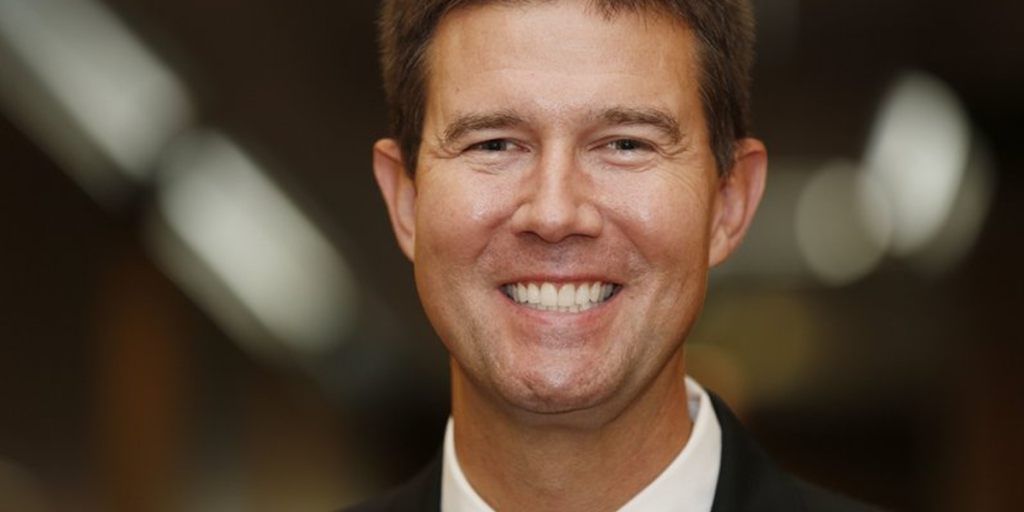
Incumbent Secretary of State John Merrill won the Republican nomination for his current position in the June 5 primary with a whopping 71.64 percent of the vote. But now that the primaries are over, the real battle begins. Merrill will face Democratic nominee Heather Milam in the November 6 general election, and the two candidates could not be any more different. With that in mind, here are five things you need to know about John Merrill: 1. He has been involved in government in some way since 1983. While attending the University of Alabama, Merrill served as a Congressional Intern for then U.S. Rep. Bill Nichols and U.S. Sen. Howell Heflin in 1983 and 1984. These internships jumpstarted Merrill’s career, leading him to several positions in local and state government at a very early age. In 1990, Merrill accepted the Assistant Director’s position at the Tuscaloosa County Industrial Development Authority where he assisted in recruiting Mercedes-Benz to the area. Merrill then served as director to many boards, and chambers in and around Tuscaloosa until 2010 when he was elected to serve as the State Representative for for District 62. In 2014 Merrill was elected to serve as Alabama’s 53rd Secretary of State, where he still serves today. 2. He is an active member of many different organizations and serves in a leadership role in several of them. According to the Secretary of State’s office, Merrill has served in leadership roles for various different community organizations including: “The Alabama Sports Hall of Fame Selection Committee, Children First Board of Directors, Friends of the Alabama Archives Board of Directors, Alabama YMCA Youth in Government Board of Directors, State Republican Executive Committee, National Rifle Association, Leadership Tuscaloosa, The Chamber of Commerce of West Alabama, United Way of West Alabama, YMCA, Boys and Girls Club, Big Brothers, Big Sisters, Boy Scouts of America, March of Dimes, Hillcrest High School Athletic Boosters Club, West Alabama Literacy Council, Alabama Constables Association & others.” “He has also served as Southeastern Regional Vice President for the National School Public Relations Association and President or Chairman of many groups, which include the Alabama Children’s Trust Fund, Alabama School Communicator’s Association and the Alabama Community Education Association, American Red Cross, Leadership Tuscaloosa Alumni Association, United Cerebral Palsy of West Alabama, Youth for Christ, Druid Civitan Club, the Tuscaloosa City School’s Vocational Advisory Council, past Chairman of the Tuscaloosa County Republican Executive Committee.” 3. He was president of the Student Government Association at the University of Alabama. While pursuing his Political science degree from the University of Alabama, Merrill served as President of the university’s Student Government Association (SGA) from 1986 to 1987. Note; Several members of the Alabama legislature have begun their political careers in universities student government associations. Governor Kay Ivey was a member of the SGA at Auburn University and State Auditor Jim Zeigler was the President of the SGA at the University of Alabama from 1970 to 1971. 4. He comes from a long line of Alabama politicians. Merrill is a descendant of former Lieutenant Governor of Alabama, Hugh Davis Merrill, member and speaker of the Alabama House, Hugh Davis Merrill, Jr., and Pelham Jones Merrill, a member of the Alabama House who fought in World War II. 5. He has represented the state in several countries including Russia. Merrill was a member of a coalition of U.S. leaders who traveled to Russia in 2016 to observe the nation’s parliamentary polls. “We had unfiltered, unbridled access and could walk in unannounced. There were no incidents I saw where people were heavily influenced to support one party or candidate over another,” Merrill told the Alabama Newscenter.
Five things you need to know about Will Ainsworth

Now that the runoff elections are over, voters are turning their attention to the November General Election less than 90 days away. After a jam-packed primary race, Guntersville-Republican State Rep. Will Ainsworth Public Service Commission President Twinkle Cavanaugh garnered enough support to tip the race into a runoff election. Ainsworth won the July 17 runoff with just 51 percent of the vote. Now Ainsworth moves to the November general election, where he faces Democratic candidate Dr. Will Boyd. With that in mind, Here’s five things you need to know about Will Ainsworth: 5. His first job out of college, he served as a youth pastor After graduating from Auburn University with a Bachelors degree in Marketing, Ainsworth served as a youth pastor at Grace Fellowship Presbyterian Church in Albertville. There, he led middle school and high school students into a committed relationship with Jesus Christ. 4. He loves the outdoors, and owns a Hunting lodge in Guntersville, Ala. After leaving his job as a youth pastor, Ainsworth sought a way to incorporate his passion for hunting and fishing into his daily life. He and his brother Austin founded Dream Ranch, a popular hunting lodge in Guntersville attended by over 20,000 people annually. The lodge allows guests to hunt Whitetail Bucks, Bobwhite Quail, and Ducks all on the same property. He is also a co-founder and promoter of the Tennessee Valley Hunting & Fishing Expo held annually at the Von Braun Center in Huntsville Ala. The expo allows outdoor enthusiasts of all kind to gather for a weekend of entertainment and gives hunting, fishing, and outdoor gear merchants a place to peddle their wares. 3. Kay Ivey used his security program as a backboard for the new Alabama Sentry Program Ainsworth proposed a bill in the legislative session earlier this year, and even though the bill failed, Kay Ivey’s Alabama Sentry Program is very similar to the proposed bill. The bill proposed that school administrators, principles, and teachers who met certain qualifications would be allowed to carry a firearm on school campuses. It also required that those carrying must complete a 40-hour course in basic school policing in a program approved by the Alabama Peace Officers’ Standards and Training Commission, and pass an annual firearm re-qualification; the same test required of law enforcement officers. The only real difference between the two plans is Ainsworth’s provision to include teachers in the program, which he believes is crucial to the program’s success. 2. He’s a member of several committees in the Alabama Legislature Although all members of the legislature serve on several committees, Ainsworth serves on a wide array of committee’s integral to the state and Alabamians. Ainsworth currently serves on the Agriculture and Forestry, Ethics and Campaign Finance, State Parks, Public Safety and Homeland Security, and the Transportation, Utilities and Infrastructure committees. 1. He has twin boys Ainsworth has twin boys, Hunter and Hays, who are eight years old. He coaches them in basketball, baseball and soccer. “My priorities will always be Faith, Family, and Service in that order,” Ainsworth wrote on Facebook in 2014.
Five things you need to know about Twinkle Cavanaugh

The primary elections are over, but some highly sought spots still remain open due to the primary races resulting in runoffs. One of those races is for the Lieutenant Governor’s seat. In a highly contested and publicized race; Guntersville-Republican State Rep. Will Ainsworth came in second to Public Service Commission President Twinkle Cavanaugh. Ainsworth garnered just enough support to tip the race into a runoff election. Now the two republicans will battle it out until the runoff set for July 17 determines a winner. With that in mind, here are the five things you need to know about Twinkle Cavanaugh: 5. She was the first female Chairman of the Alabama Republican Party Elected in 2005 as the first female Chair of the Alabama Republican Party, Cavanaugh led the way to building a strong and inclusive state party, encouraging other women to pursue their goals as well. According to AL.Com in 2003, she spoke to a group of Huntsville business leaders sharing her five tidbits of success, “Build relationships, have goals, think outside the box, face adversity positively and make a difference”, Cavanaugh told a group of 40 women. But her time as chairman wasn’t all sunshine and rainbows. Cavanaugh devoted a large part of the party’s efforts at removing conservative Democrats in the legislature. Telling them they could consider switching parties or face tough, well-financed conservative republican opponents in the general election. 4. She was Governor Bob Riley’s Deputy Chief of Staff and a senior advisor in his office Before her election as Chairman of the Republican party, Cavanaugh served as then Governor Bob Riley‘s appointments secretary, then Deputy Chief of Staff from 2003 to 2004. After losing her first shot at a Public Service Commission seat in the 2008 general election, then Riley offered her another job, this time a special assistant for corporate affairs in the state’s finance department. 3. She’s been involved in Alabama politics for 20 years Cavanaugh has an incredibly impressive resume. After graduating from Auburn University in 1989 she went to work in Washington D.C. for the Republican National Committee, she then went to work for then Mobile-Republican U.S. Rep. Sonny Callahan. Returning to Montgomery in 1998 she worked on several Republican campaigns and served as executive director of the Alabama Republican Party from 1999 until 2001. She then took a job as state director of Citizens for a Sound Economy. From there, she worked in Riley’s office, secured her spot as chairman of the Republican party, and began to run for public office in 2008. In 2010 Cavanaugh won her seat on the Alabama Public Service Commission, and was elected President of the commission in 2012, a position she maintains today. 2. She is a co-owner of two different businesses Cavanaugh is a co-owner of her husband Jeff’s veterinarian clinic in Auburn, Ala. the Cavanaugh Bradley Animal Hospital. She is also a co-owner of Conservative Solutions, a political consulting firm run by herself. 1. She loves FOX News When Cavanaugh filled out Alabama Today’s candidate questionnaire, she was asked wether she watches 60 Minutes or House of Cards, her answer: “Neither; in our house if the TV isn’t on Fox News, it’s only because the local news is on or there’s a college football game on.” She also mentioned that Fox News is the outlet she gets almost all of her political news from.
Five things you need to know about Kay Ivey
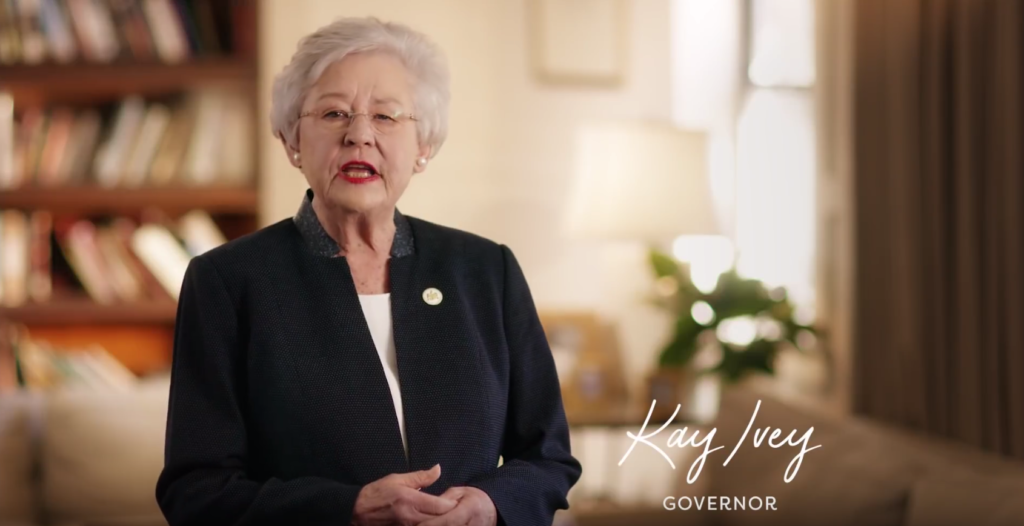
The primaries are over, and the real battle begins. Incumbent Governor Kay Ivey won the republican nomination for governor in a landslide victory, with just over 56 percent of the vote she will face-off against Walt Maddox in the November general election. With that in mind, Here’s five things you need to know about Kay Ivey: 5. She’s been involved in politics since high school Ivey’s first introduction into politics was in 1962 when she served as the lieutenant governor for the Wilcox County High School at Alabama Girls State. While in college at Auburn University she spent four years in the Student Government Association and coordinated for Democratic gubernatorial candidate Lurleen Wallace‘s campaign on the school campus. 4. She first ran as a Democrat in 1982 In 1979 she was appointed by then Democratic Governor Fob James to serve as a member of his state cabinet. Ivey then rose through the ranks quickly, serving as law clerk of the Alabama House of Representatives, and Assistant Director of the Alabama Development Office. In her first attempt to obtain a state office, Ivey ran as a Democrat, and was defeated by Jan Cook in the State Auditor’s race in 1982. Ivey didn’t change parties until 2002, when she began her race for State Treasurer and decided to run as a Republican. 3. She is only the second woman in the state’s history to serve as Governor Out of 54 governors who have been elected to serve as governor to the Yellowhammer State, only two have been female. Lurleen Wallace was the first and only female governor to hold the position until Ivey became the second woman to hold the office in 2017. 2. Under her watchful eye, the Alabama PACT program almost failed In 1989 the Alabama State legislature created the PACT program, allowing parents to pre-pay their children’s college tuition but when tuition rates begin to rise, and stock markets began to fall the program began struggling in the early 2000’s. Ivey, who served as State Treasurer from 2003-2011, said “only market conditions caused this, not staff or the board. It’s due solely to the economic conditions of the country,” according to AL.com. By 2010, the program stopped selling contracts, and the legislature had to pass a plan to save the program, shoveling $548 million over 13 years starting in 2015 to save the day. However, when Young Boozer took office in 2011 he said the money the legislature promised would not be enough to sustain the program, and in May the board approved the settlement of a class-action lawsuit filed by contract holders. 1. She was born on a cattle farm, and was raised as an only child Ivey was born in Wilcox county to Boadman Nettles Ivey, an Army Major and a World War II veteran who started a cattle farm in the small town of Camden, Ala. home to less than 1,000 people at the time. She used her upbringing in several different ads this campaign season, the most notable an ad in which she touted her knowledge of “mountain oysters” saying “don’t give me a mountain oyster and tell me it’s seafood.”
Five things you need to know about Bobby Bright
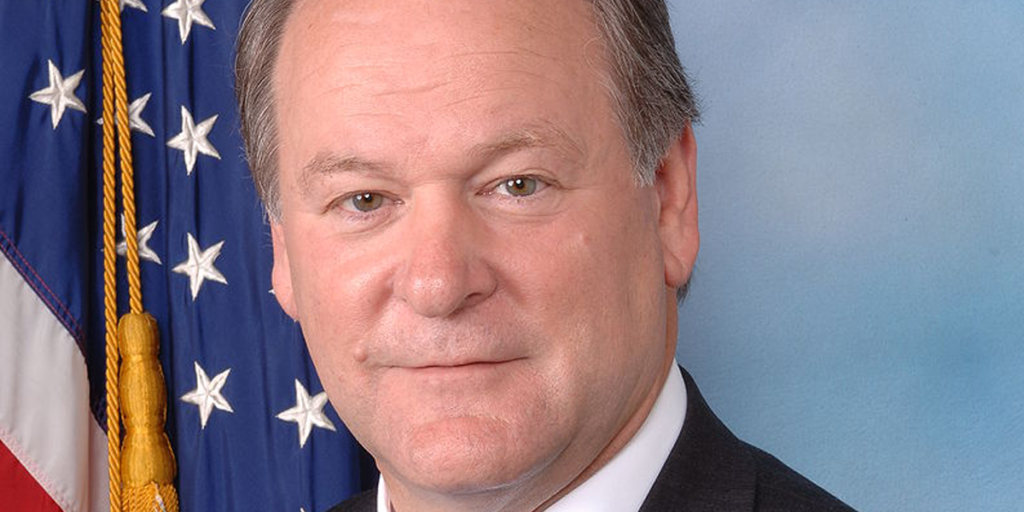
The primary elections are over, but some highly sought after spots still remain open due to the primary races resulting in runoffs. One of those races is for the Alabama 2nd Congressional District seat. Bobby Bright faced-off against Incumbent Martha Roby and three other opponents in the June 5 primary election, Roby and Bright both pulled enough voter support to tip their race into a runoff set for July 17. Here’s five things you need to know about Bobby Bright before the July runoff: 5. He’s served in this office before, but as a Democrat. Prior to 2008 Bobby Bright had never claimed affiliation with any party. But that year, he decided to seek election for Alabama’s 2nd District seat in the U.S. House of Representatives. When he approached the Republican party about joining the ticket, they told him they intended to support another candidate. So Bright joined the Democratic ticket, and won in 2008, but ultimately the decision to run as a Democrat came back to bite him. In Congress, Bright was a member of the Blue Dog Coalition, and voted with Democratic leadership only 71.7% of the time which made him the second most conservative member of the House Democratic Caucus. Bright was also named the most conservative Democrat during the first session of the 111th United States Congress by the National Journal. In 2010, Martha Roby entered the scene and challenged Bright as the Republican nominee. She won. Flash-forward eight years later, and Bright is back to reclaim his former seat in the House. This time as a Republican. He announced his candidacy in February under the Republican ticket, saying he would be more effective in Washington as a Republican. Later that month, the Alabama Republican Party okayed his decision and let him remain on the ballot. 4. He was mayor of Montgomery for a decade. Before Bright became the U.S. Rep for Alabama’s 2nd Congressional District, he served as the mayor of Montgomery for a an entire decade. He was also the first mayor of Montgomery ever to be elected to Congress. Some of Bright’s most notable achievements during this time include the creation of almost 20,000 jobs, including the jobs added by the arrival of the Hyundai plant in Montgomery during his time in office. He also revitalized the city’s declining downtown area, and had implemented a rainy day fund of $30 million before he left for Congress. 3. He used to be a lawyer and is married to a former judge. Bright earned his M.S. in criminal justice from Troy State University in 1977. He went on to own his law practice in Montgomery, where he practiced for fifteen years before entering into politics. He was also chief counsel to the Alabama Department of Corrections (side note, talking about coming full circle: he actually began his career as a corrections officer). He is also married to former District Judge Lynn Bright. 2. Bright was one of 14 children, and grew up on a cotton farm Bright was the son of a sharecropper, and missed a week of school every year to bring in the cotton harvest. This firsthand knowledge made him a valuable asset on the Agricultural Committee in Congress. Of all 14 children in his family, Bright was the only one to graduate from college. He attended Auburn University and earned his bachelors degree in 1975. He then proceeded to Troy University, receiving a master’s degree in 1977 and a J.D. from Faulkner University in 1982. 1. He dug his own postholes for his campaign signs. Bright posted a photo of himself digging postholes for his own 4×8 campaign signs on Facebook, asking supporters to call or message his campaign if they had a suitable place for a sign that large. Looks like Bright’s years spent on the family’s cotton farm paid off in more ways than one.

